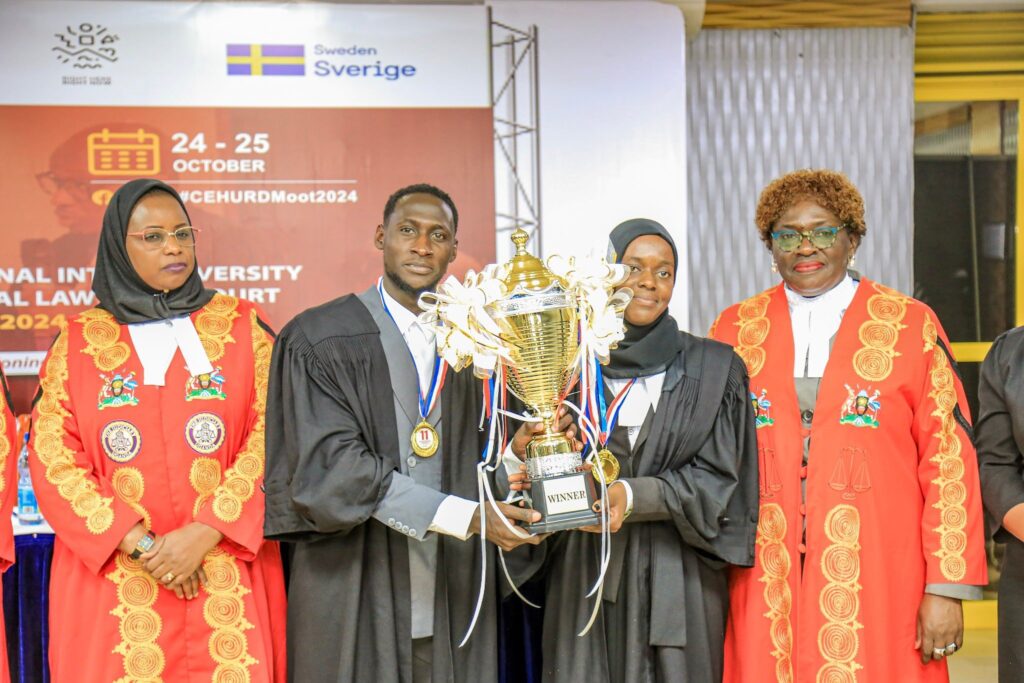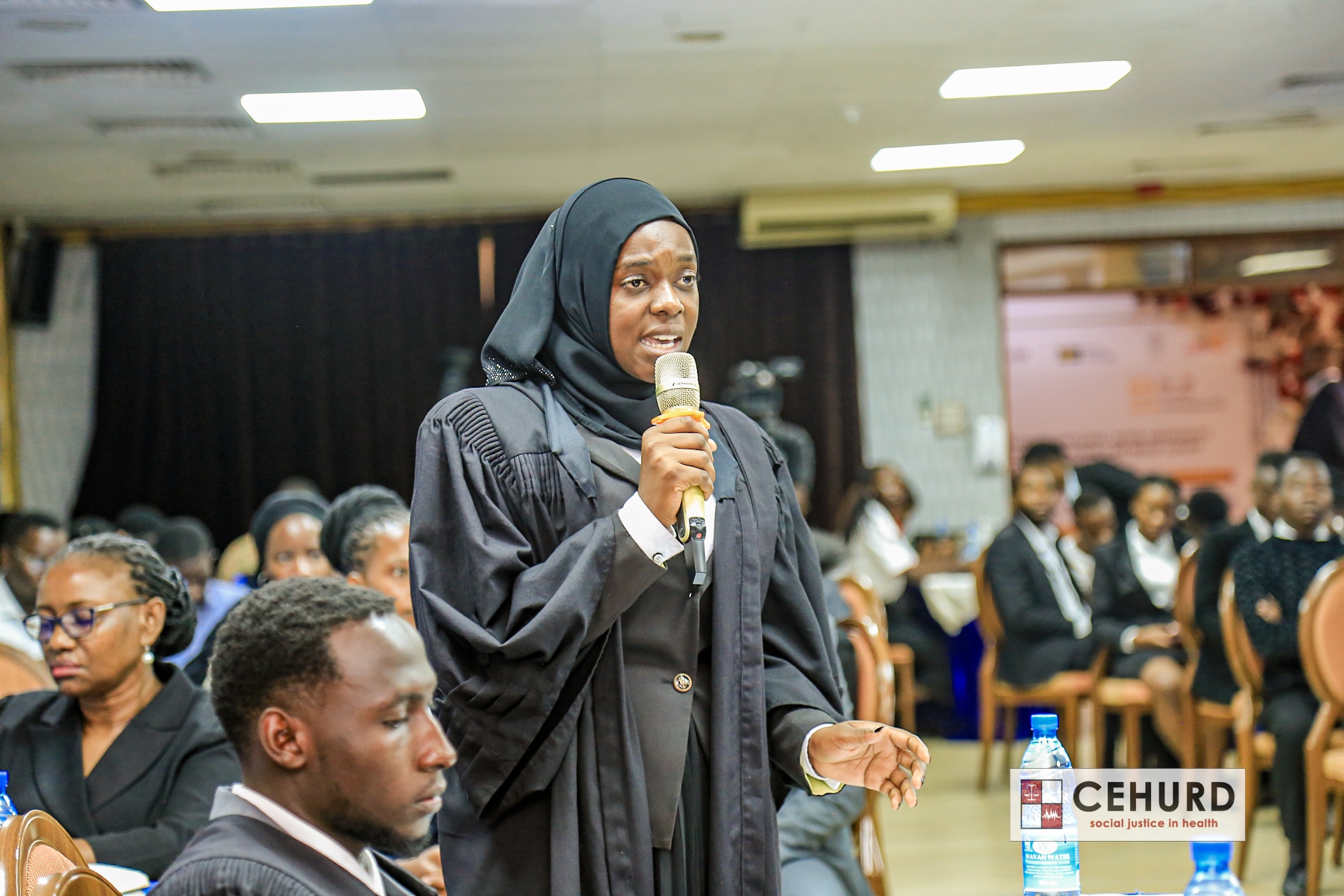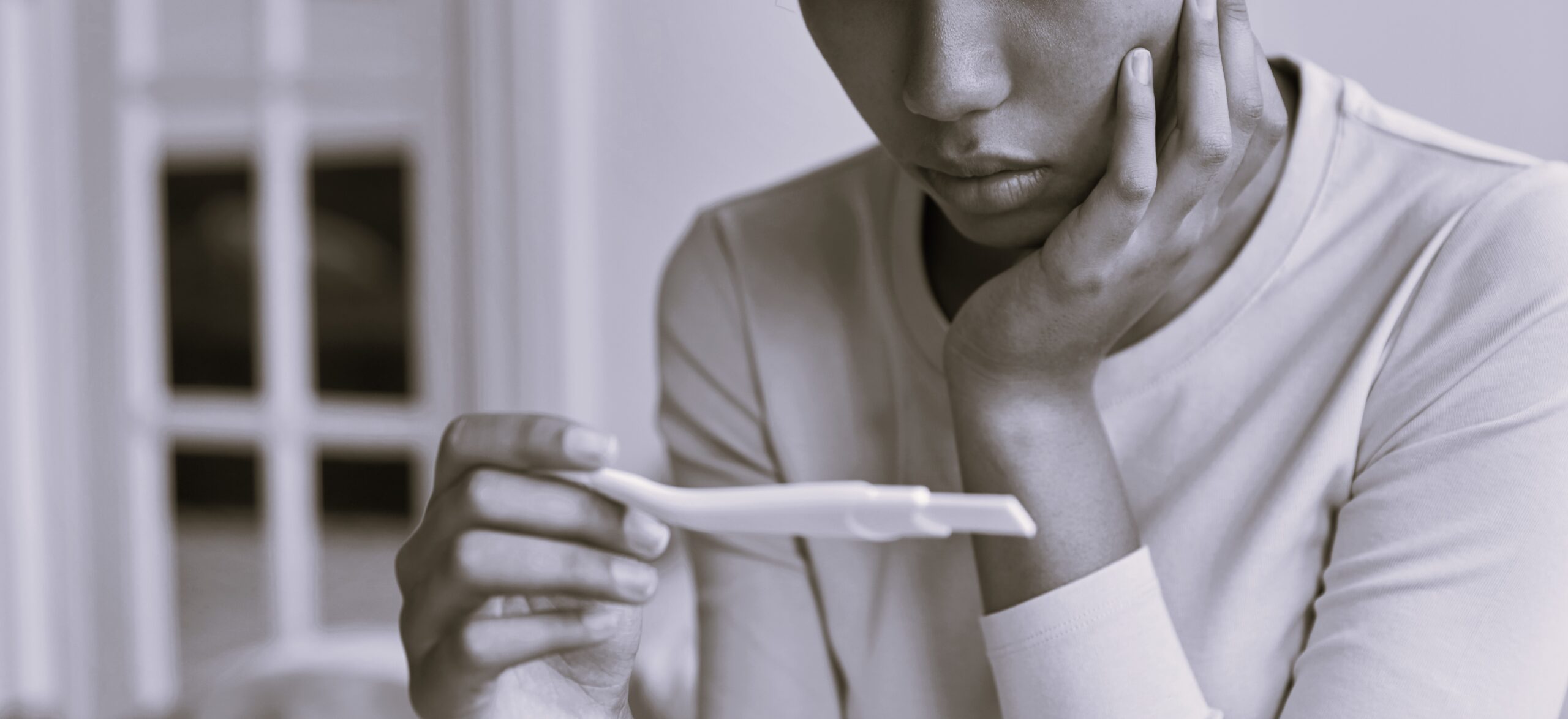As a law student, participating in the 11th Annual National Inter-University Constitutional Law Moot Court Competition organised by the Center for Health, Human Rights and Development (CEHURD) in 2024 remains a source of immense pride for me.
Mooting can be defined in various ways, but simply put, it is the oral presentation of a legal issue or problem before a judge, contested against opposing counsel. For the CEHURD moot, it is not just any person sitting as a judge but real judicial officers from Uganda’s Judiciary – from Magistrates Courts all the way up to the Supreme Court of Uganda. This opportunity is a dream come true for any law student.
The journey to participating in the CEHURD Annual Moot Competition was not without hardships and challenges. Teamwork and commitment enabled us to navigate the extensive requirements of the competition, including preparing memorials and training for the oral rounds.
Although crafting memorials initially seemed the hardest part, I grew to love it because of the immense learning involved. It taught me how to conduct expansive legal research and the art of crafting persuasive arguments grounded in legal principles – skills that have significantly improved my drafting. With the guidance of our dedicated instructor and mentor, Mr. Mukabire Moses, we were able to submit well-researched and impressive memorials.
On 23rd October 2024, upon checking into Hotel Africana Kampala – a perk that comes with participating in the CEHURD moot, I was met with a wave of nervousness as I contemplated my oral presentation the next day. That day felt like the moment to bring everything together for a final push. Overwhelmed at times by the volume of information from extensive research, I received crucial guidance that helped me distill the most relevant legal principles and arguments. These enabled me to advocate effectively in the hypothetical case between Amani Health Lawyers Initiative and Dr. Abeni against the Attorney General of Bokomo and Sawubona Hospital. As the saying goes, success is no accident.
Winning the CEHURD moot was no accident. My teammate, Mr. Tamale Ahmad, and I worked hard, persevered, learned, studied, sacrificed, and most importantly loved what we were doing. It is no surprise that my university, my second home – the Islamic University in Uganda, Mbale campus, emerged as the best among thirteen participating universities.
Throughout the competition, I learned that thorough preparation is key to success in any contest. As a participant, you must prepare for all rounds, not just one – it is a marathon, not a sprint! I also realized that success isn’t always about your case alone; it requires flexibility and persuasiveness. You must listen closely to your opponents’ arguments and sometimes deviate from your scripted submissions while staying true to your core points.
The highlight of the competition was being announced the overall best oralist. The voice of Hon. Lady Justice Suzan Okalany still echoes in my ears as if it happened yesterday. More than the announcement itself, I was thrilled to learn that I would secure an internship with CEHURD.
In June 2025, I began my internship at CEHURD, and these past three months have been an incredible journey of exposure and learning. I have had the privilege of working alongside experienced professionals in health and the law who have mentored me and provided ongoing opportunities for growth. Through this work, I have engaged with clients and vulnerable community members who have suffered health rights violations.
I have provided legal advice and supported clients – steps toward the realization of justice. My exposure includes legal research, legal aid service provision, and advocacy for legal and policy reforms that create an enabling environment for Sexual and Reproductive Health and Rights (SRHR) in Uganda. I have come to understand that the right to health is often neglected in law, yet it is essential for the enjoyment of all other fundamental human rights.
Beyond this, the educational and networking benefits have been immense and indefinable. The CEHURD moot is a powerful platform where students learn that the right to health is a constitutional mandate for all Ugandans that deserves respect and protection alongside all other human rights. Central to this is SRHR – often misunderstood and disregarded, yet vitally important for everyone’s well-being.
To this day, I am deeply grateful to CEHURD for granting me an opportunity that is shaping my future in the legal profession. To the Strategic Litigation Department that works tirelessly to ensure these competitions succeed, your dedication is a testament to your love for the legal fraternity. Thank you for making my internship invaluable. I look forward to advancing the right to health for all in Uganda and beyond.
Nanyunja Shakirah
Best Oralist
11th Annual National Inter-University Constitutional Law Moot Court Competition winner, 2024.



